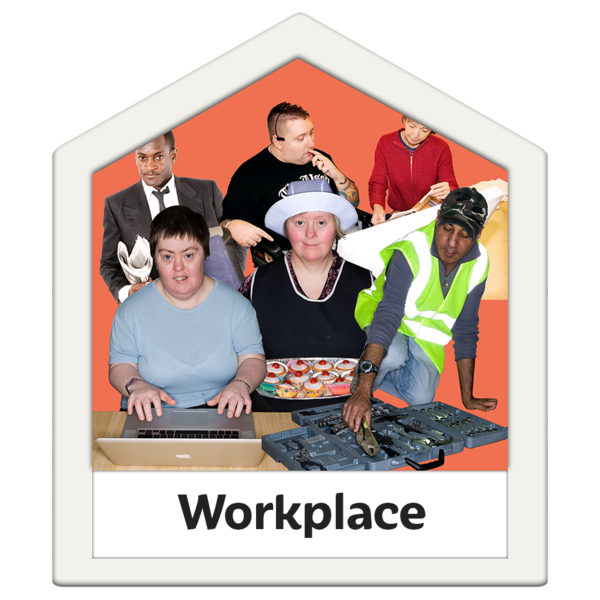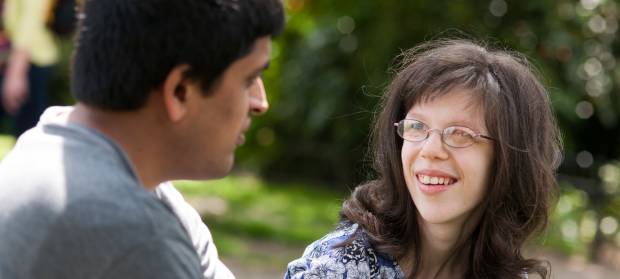What is Williams syndrome?
Williams syndrome is a rare genetic condition.
It occurs randomly and affects 1 in 18,000 people in the UK. Williams syndrome is not passed on from parent to child.
Williams syndrome and learning disability
Williams syndrome affects everyone in different ways, but many people will have a
learning disability
 A learning disability is to do with the way someone's brain works. It makes it harder for someone to learn, understand or do things.
.
A learning disability is to do with the way someone's brain works. It makes it harder for someone to learn, understand or do things.
.
A child's development will be delayed if they have Williams syndrome, which means they may take longer to learn how to walk, talk, and develop other social skills.
How does Williams syndrome affect someone?
As well as a learning disability, people with Williams syndrome will often share distinctive facial characteristics including a wide mouth with a pronounced bottom lip, slightly high and rounded cheeks, and widely-spaced teeth.
People with Williams syndrome can develop physical and mental health problems later in life, including anxiety and depression.
People with Williams syndrome are very talkative and can be excessively friendly.
The Learning Disability Helpline is our free help and advice line.
Our team can offer advice, information and discuss what support Mencap can offer tailored to your needs, in your area.

"The future is incredible!"
"When I was born, doctors said "she will never walk", "she may never talk". They gave my family a bleak outlook for my future saying I may not live past my 9th birthday. I proved them wrong when I did!
Even though at the start of my life things were very uncertain, the future now is incredible. Who would have thought I would have succeeded in everything that I set my heart on doing - from passing my GCSEs, going to college and gaining
work experience
 Work experience is when you try out a job to help you learn new skills.
at Mencap. It has given me such pride and confidence for the future."
Work experience is when you try out a job to help you learn new skills.
at Mencap. It has given me such pride and confidence for the future."
Diagnosis
Diagnosing Williams syndrome can be tricky. Contact your GP if you have any concerns about your child.
Williams syndrome is caused by a tiny piece of information in a chromosome missing. A simple blood test can tell if a chromosome is different to normal, which can help towards getting a diagnosis.
Early diagnosis can help you get the support you need, so make sure you contact a GP if you are worried.
Spotting the signs
Everyone with Williams syndrome will be be different, but some of the early signs of Williams syndrome in children can include:
- low birth weight and slow growth
- excessive vomiting and difficulty feeding
- constipation
- trouble sleeping
- hernias.
Living with Williams Syndrome
With the right support, people with Williams syndrome can live a fulfilled life, in the way they choose.
Physical therapy and speech and language therapy can also help people with Williams syndrome develop as they grow up.
Finding the right support
For support, contact the Learning Disability Helpline, or visit the Williams Syndrome Foundation website.
The Learning Disability Helpline is our free help and advice line.
Our team can offer advice, information and discuss what support Mencap can offer tailored to your needs, in your area.
